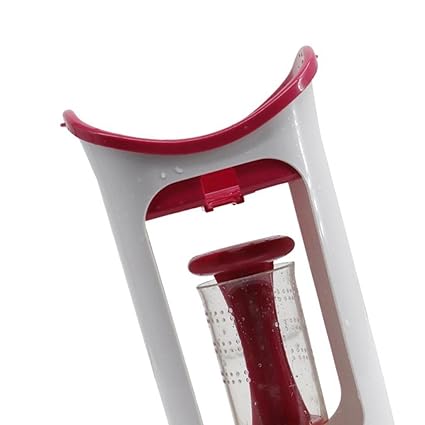Buy Online Specialized bio-plastic product intended for the manufacturing of food-grade products, bioplastic is safe, durable,100% Pure products like crockery, water storage tanks, water pipes, food container from BuyBestBrands.in in Association with Amazon India
Home » Baby Store » Feeding » Food Storage » Specialized bio-plastic product intended for the manufacturing of food-grade products, bioplastic is safe, durable,100% Pure products like crockery, water storage tanks, water pipes, food container
Product Features :
- Versatile & Safe: Suitable for a wide range of food-grade products, offering an ideal solution for manufacturers looking for high-performance materials that meet stringent health and safety standards.
- Environmentally Friendly: Our bioplastic is made from renewable, biodegradable materials, providing an eco-conscious alternative to traditional plastic products.
- Foolproof Packaging: Each batch is carefully packed in brick form (2 kg blocks) to ensure the preservation of the material's integrity, preventing any contamination or mixing during storage
- 100% Pure & Food-Grade Quality: Perfect for products like crockery, water storage tanks, water pipes, food containers, and other related applications that require high food safety standards.
- This innovative bioplastic is available for purchase in 2 kg brick form with foolproof packing for safe storage and easy mixing.
- Bioplastics are a more sustainable alternative to traditional plastics for food packaging because they are biodegradable, made from renewable resources, and can help maintain food freshness: Renewable resources: Bioplastics are made from renewable resources like corn, sugarcane, potatoes, wood pulp, and herbaceous fibers. This reduces the need for fossil fuels and toxic emissions.
- Biodegradable: Some bioplastics are biodegradable or compostable under the right conditions. Food freshness: Bioplastics are more permeable to water vapor than traditional plastics, which helps keep food fresh without condensation. This can prevent mold and rot, and delay the sprouting of vegetables.
- Lower carbon footprint: Bioplastics can have a lower carbon footprint than fossil-based plastics. Compatible with recycling: Some bioplastics are compatible with existing recycling streams. However, there are some potential downsides to bioplastics, including: Competition with food production: Bioplastics could compete with food production for resources.
- Unclear end-of-life management: There can be uncertainty about how bioplastics are managed at the end of their life. Higher costs: Bioplastics can be more expensive than traditional plastics. Some ways to mitigate the negative impacts of bioplastics include: Using non-food agricultural waste Dedicating specific crops for bioplastic production Using plants that can be grown on marginal land, such as cassava, castor, and algae Scaling up the production of bioplastics from agricultural waste using biological fermentation
Compare With Similar Items
Popular Categories on BuyBestBrands.in
Garden & Outdoors : Seeds, Plants, Plant Containers, Gardening Tools, Garden Decor, Pest Control, Barbecue & Outdoor Dining, Solar Power, Fertilizer & soil, Watering Equipment
Amazon Brand : Symbol, Inkast Denim Co, House & Shields, Jam & Honey, Solimo, Presto!, Symactive, Eden & Ivy, Vedaka, Tavasya, Myx


 2800
2800 2324
2324









